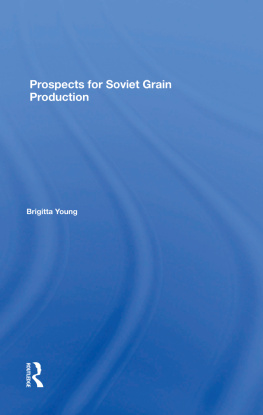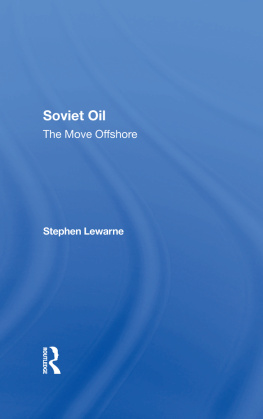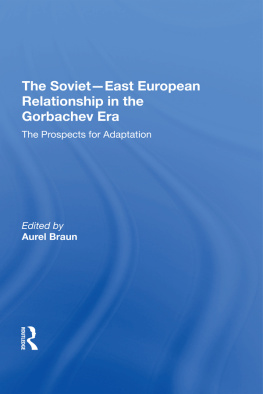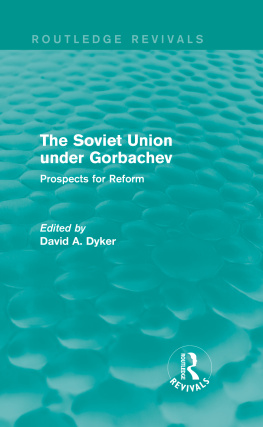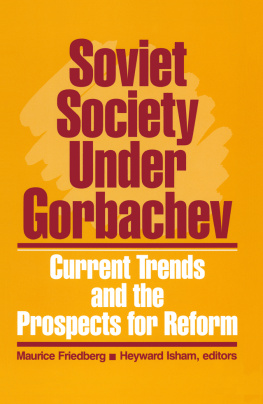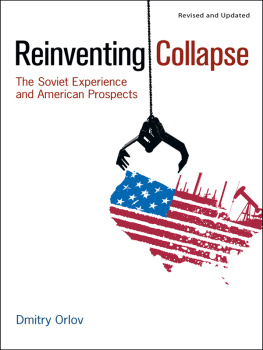Prospects for Soviet Grain Production
Westview Replica Editions
The concept of Westview Replica Editions is a response to the continuing crisis in academic and informational publishing. Library budgets for books have been severely curtailed. Ever larger portions of general library budgets are being diverted from the purchase of books and used for data banks, computers, micromedia, and other methods of information retrieval. Interlibrary loan structures further reduce the edition sizes required to satisfy the needs of the scholarly community. Economic pressures on the university presses and the few private scholarly publishing companies have severely limited the capacity of the industry to properly serve the academic and research communities. As a result, many manuscripts dealing with important subjects, often representing the highest level of scholarship, are no longer economically viable publishing projects--or, if accepted for publication, are typically subject to lead times ranging from one to three years.
Westview Replica Editions are our practical solution to the problem. We accept a manuscript in camera-ready form, typed according to our specifications, and move it immediately into the production process. As always, the selection criteria include the importance of the subject, the work's contribution to scholarship, and its insight, originality of thought, and excellence of exposition. The responsibility for editing and proofreading lies with the author or sponsoring institution. We prepare chapter headings and display pages, file for copyright, and obtain Library of Congress Cataloging in Publication Data. A detailed manual contains simple instructions for preparing the final typescript, and our editorial staff is always available to answer questions.
The end result is a book printed on acid-free paper and bound in sturdy library-quality soft covers. We manufacture these books ourselves using equipment that does not require a lengthy make-ready process and that allows us to publish first editions of 300 to 600 copies and to reprint even smaller quantities as needed. Thus, we can produce Replica Editions quickly and can keep even very specialized books in print as long as there is a demand for them.
About the Book and Author
Prospects for Soviet Grain Production
Brigitta Young
This book challenges the conventional view that the present low yields of the Soviet agricultural system result primarily from its institutional structure, demonstrating that other factors are of equal or greater importance. Ms. Young examines two alternative explanations: first, that weather is the dominant force underlying trends in Soviet grain production, and second, that Soviet grain production has reached the point of significant diminishing returns in relation to technology. Evaluating the validity of both these hypotheses by integrating political analysis with an assessment of soils, climate, and technology, she shows that the disadvantageous resource base of the Soviet Union, its lack of adequate agro-infrastructure, and insufficient technology (especially fertilizer) are major causes of grain shortfalls. The implications of these findings are discussed in relation to prospects for future Soviet grain production.
Brigitta Young, formerly Regents' Fellow at the University of California, Davis, is currently a Ph.D. candidate in the Department of Political Science at the University of Wisconsin, Madison.
This book is dedicated to my parents, Karl and Ottilie Frauscher, and to my daughter, Birgit
Prospects for Soviet Grain Production
Brigitta Young
First published 1983 by Westview Press
Published 2019 by Routledge
52 Vanderbilt Avenue, New York, NY 10017
2 Park Square, Milton Park, Abingdon, Oxon OX14 4RN
Routledge is an imprint of the Taylor & Francis Group, an informa business
Copyright 1983 by Taylor & Francis
All rights reserved. No part of this book may be reprinted or reproduced or utilised in any form or by any electronic, mechanical, or other means, now known or hereafter invented, including photocopying and recording, or in any information storage or retrieval system, without permission in writing from the publishers.
Notice:
Product or corporate names may be trademarks or registered trademarks, and are used only for identification and explanation without intent to infringe.
Library of Congress Cataloging in Publication Data
Young, Brigitta.
Prospects for Soviet grain production.
(A Westview replica edition)
Bibliography: p.
1. Grain--Soviet Union. 2. Grain--Government policy--Soviet Union.
3. Grain--Soviet Union--Fertilizers. 4. Grain--Soviet Union--Climatic
factors. I. Title.
SB192.S65Y68 1983 338.1'731'0947 83-10401
ISBN 13: 978-0-367-28450-3(hbk)
The completion and publication of this work would not have been possible without the assistance of many people.
My gratitude goes especially to Kenneth E.F. Watt, Zoology, University of California, Davis, in whose graduate seminar the ideas for this book were conceived. Many hours of personal discussion with Dr. Watt were the inspiration behind my decision to use an interdisciplinary approach to the problems of Soviet agriculture.
The actual completion of the work was greatly facilitated by the thoughtful guidance of Robert S. Loomis, Agronomy and Range Science, University of California, Davis. Dr. Loomis' encyclopedic knowledge of agricultural policy issues and patience in transmitting the rudimentary knowledge of agronomy to a political scientist were enormously helpful.
I also wish to thank Paul E. Zinner, who encouraged me to question the traditional approach to Soviet agriculture. His moral support helped overcome the moments of doubt I had during some of the more difficult periods of research. Alexander J. Groth was instrumental in overseeing and accepting the final draft of the thesis upon which this present work is based. The title of the book was suggested by Robert A. Johnston.
This book would not have been completed without the help of my colleague and friend, Jill S. Auburn. Her many suggestions and comments greatly improved the general quality of the book, and were particularly useful in coping with the host of data analysis problems which inevitably arose. In a very real sense, Ms. Auburn shares in the final product.
I thank Allen G. Marr, Dean of Graduate Studies and Research, and Randolph M. Siverson, Chairperson of Political Science, University of California, Davis, for the financial assistance which made the publication of this book possible.
Robin Campbell deserves high praise for the editing as well as the timely preparation of the manuscript.
Ninally, my special gratitude goes to my daughter, Birgit, who for many months patiently witnessed the unfolding of this project. Her sacrifices were great and are very much appreciated.
Brigitta Young
The ever-growing Soviet reliance, since the early 1970s, on the international grain markets to offset periodic Soviet production deficits is seen by Western scholars and private and governmental research organizations as renewed evidence that the Soviet socialized agricultural sector is an abysmal failure. Evidence of chronic inefficiencies and bureaucratic incompetence is readily available to support this view of a "permanent crisis" in Soviet agriculture.


